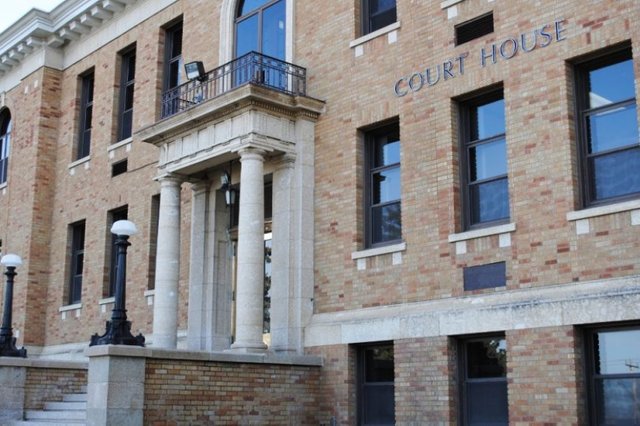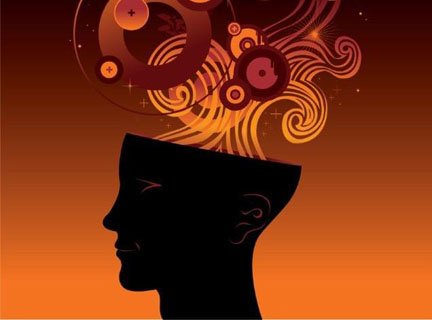Lie to me, I like it.
You get off the plane. It's been a long time since you've been home. The breeze brings to you the different aromas of local food stores. At some shop, you can hear great music playing, not enough with that, the customs officer looks at your passport picture and tells you "welcome! you haven't changed at all!". You're back t that place where everything is "just like you like it", everything fits, everything makes sense.
After that you come across your ex, you argue about politics with a taxi cab driver or or accidentally listen a conversation about "those f---ing ----- ruin everything". A sad event that kicks you in the groin and makes you come back to reality, you were idealizing.
That way of looking at life, where being a teenager was a great experience, the neighborhood was perfect, that girlfriend was not that bad and where the present time always loses when it is compared to the past, we define it as nostalgia.

Perhaps idealizing the past and maybe modifying it a bit to look better has a certain key role in our lives. There's psychologic studies that were made about it, comparing subjects that are induced into a nostalgic state (by making them write, o think about autobiographic events), and subjects that are asked to evoke common daily tasks. Comparing this two groups, the melancholic group shows better overall mood, less boredom, and a decrease on the feeling of solitude, among others.
Digging in deep, it looks like a good thing, maybe it's not so bad to Photoshop our memories. But, who says that fancy edition always makes it look better?
If our cerebral memory editing machine may add a couple of extra vainilla essence drops and maybe a cherry into our memories, it may also add some vinegar into the beer. It may not be only a bit of spicing that is added but a whole dish! Maybe the fact that really happened, in which our memory is based on, is only the bowl where our memory editor makes it's fruit salad. So we may be sure about something that happened, but had nothing to do with reality.
This memory edition process has been proven to be possibly triggered every time a memory is recalled, commonly called reconsolidation, it's what happens when we evoke something, after bringing it back and playing a bit with it, we store it again.
In everyday life, the activation, edition and storage of the altered memory is what enables us to associate "things", learn, modify the information associated with a concept, place or fact. In less usual cases –and more imaginative–, this could manifest like the generator of the dejá vu. Under more complex situations it may be responsible of delirium, psychotic symptoms. Or, even further, one may imagine a situation in which the witness of a crime may identify the wrong person as the perpetrator, with a total conviction about: the blonde guy siting there is the guilty guy acussed of being the redhead one that really commit that "dreadful crime".

During the '90s, in the USA, there was a boom of legal accusations based on traumatic memories that were suddenly recovered. The most famous case is the one of a man sentenced to life prison after his own daughter accused him. She said that, during 1969, her father had murdered one of her friends. Six years later, when the legal staff discovered that the "memory" was recovered by hypnosis, and that the DNA tests pointed some one else, he was exonerated.
Lucky, cases like these not only shot up the ratings of news shows, but also inspired some studies about the authenticity of memories. Better said, to what point can we trust in our memories?
In a series of experiments, four events of their childhood were presented to the participants, product of the information their families provided. After they were asked to write down what they could remember about the events they were interviewed in two different moments in a lapsus of up to four weeks. What they weren't told is, as a matter of fact, only three of the four events really happened, one was fake this was even for every single participant. The fake history was based on real details the family provided (what neighborhood they lived at, whom did they usually go to shop with...), they implied being lost at a supermarket, crying, and thanks to a total stranger, find their relatives again. Of all the participants, 25% "remembered" having been lost at the shop, they even talked about the "facts" at the interviews. One fourth of the interviewed people has been successfully implanted with a fake memory.
The most common critic to this study is that, since they are credible and innocuous "facts", they are easily implanted. But other studies showed up showing more serious implanted memories, for example, almost drowned to death and being rescued by the lifeguard, a violent animal attack, or witnessed a demonic possession live.

Editing our memories allow us to correlate things; to learn. It is a fundamental tool, a special power that left us here after hundreds of thousands of years of evolution. But, as any power, it carries a great responsibility.
Doubt, what makes us believe that every past time was better, because the same mechanism, may send to jail someone totally innocent.
A couple interesting reads on similar topic:
http://www.inc.com/geoffrey-james/this-neuroscience-hack-can-make-you-unstoppable.html
http://bigthink.com/philip-perry/scientists-have-discovered-how-to-implant-false-memories
Also - keep an eye out for @core when he starts posting on here, as he's got some AMAZING next-level tech dealing in this realm that'll blow you away... ;-)
Normally I read University papers. But some neat articles are always welcome, even if redundant.
I'll be checking them out.
wow ok thanks for the links and i'll keep an eye out for @core
great post :)
Thank you very much, I was seriously not expecting to get this many readers.
I guess I'll be trying to put up at least 3 or 4 articles per week; if the feedback starts coming.
yes go for it and if they in the right time area in which i do my daily pick of hidden gems i will definitely put it in
I'd really appreciate that, given that I write mostly... to be read :D